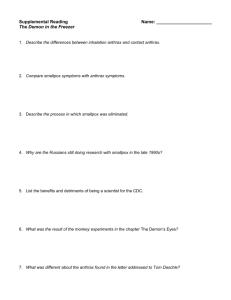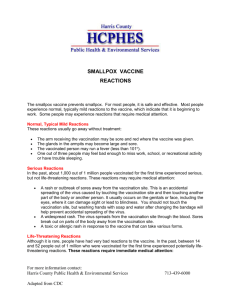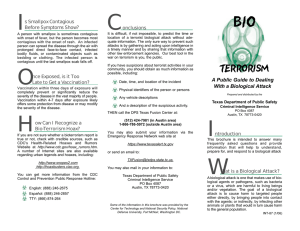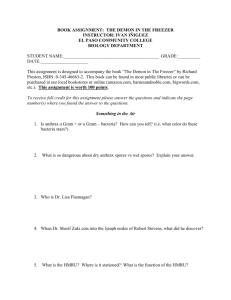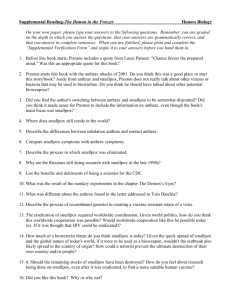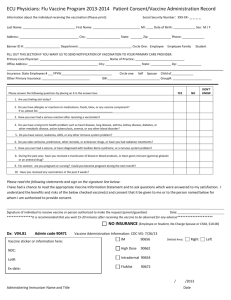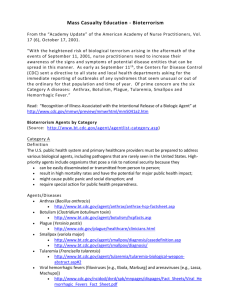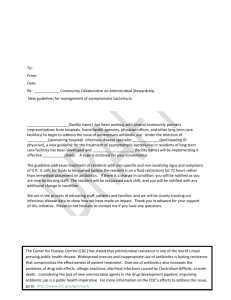CDC Health Update
advertisement
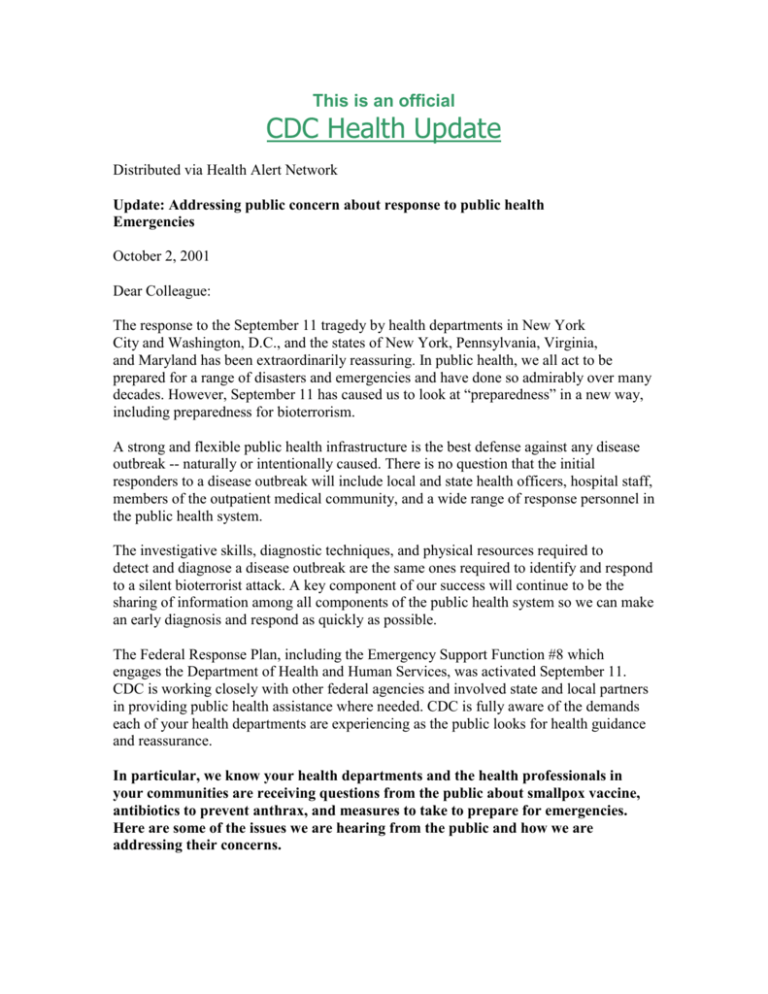
This is an official CDC Health Update Distributed via Health Alert Network Update: Addressing public concern about response to public health Emergencies October 2, 2001 Dear Colleague: The response to the September 11 tragedy by health departments in New York City and Washington, D.C., and the states of New York, Pennsylvania, Virginia, and Maryland has been extraordinarily reassuring. In public health, we all act to be prepared for a range of disasters and emergencies and have done so admirably over many decades. However, September 11 has caused us to look at “preparedness” in a new way, including preparedness for bioterrorism. A strong and flexible public health infrastructure is the best defense against any disease outbreak -- naturally or intentionally caused. There is no question that the initial responders to a disease outbreak will include local and state health officers, hospital staff, members of the outpatient medical community, and a wide range of response personnel in the public health system. The investigative skills, diagnostic techniques, and physical resources required to detect and diagnose a disease outbreak are the same ones required to identify and respond to a silent bioterrorist attack. A key component of our success will continue to be the sharing of information among all components of the public health system so we can make an early diagnosis and respond as quickly as possible. The Federal Response Plan, including the Emergency Support Function #8 which engages the Department of Health and Human Services, was activated September 11. CDC is working closely with other federal agencies and involved state and local partners in providing public health assistance where needed. CDC is fully aware of the demands each of your health departments are experiencing as the public looks for health guidance and reassurance. In particular, we know your health departments and the health professionals in your communities are receiving questions from the public about smallpox vaccine, antibiotics to prevent anthrax, and measures to take to prepare for emergencies. Here are some of the issues we are hearing from the public and how we are addressing their concerns. Smallpox. Vaccination is not recommended and, as you know, the vaccine is not available to health providers or the public. In the absence of a confirmed case of smallpox anywhere in the world, there is no need to be vaccinated against smallpox. There also can be severe side effects to the smallpox vaccine, which is another reason we do not recommend vaccination. In the event of an outbreak, the CDC has clear guidelines to swiftly provide vaccine to people exposed to this disease. The vaccine is securely stored for use in the case of an outbreak. In addition, Secretary of Health and Human Services Tommy Thompson recently announced plans to accelerate production of a new smallpox vaccine. Anthrax. Our course of action for preventing anthrax after exposure in the civilian population would be with antibiotics. Vaccination is not recommended, and the vaccine is not available to health care providers or the general public. We do not recommend that physicians prescribe antibiotics for anthrax at this time. We currently have enough antibiotics to prevent the disease in 2 million persons exposed to anthrax, therefore we could rapidly get preventive medicine to those who may be affected by this disease, which cannot be transmitted between people. Preparedness. We continue to hear stories of the public buying gas masks and hoarding medicine in anticipation of a possible bioterrorist or chemical attack. We do not recommend that the public do either. As Secretary Thompson said recently, people should not be scared into thinking they need a gas mask. In the event of a public health emergency, local and state health departments will inform the public about the actions individuals need to take. For more information on our emergency public health response efforts, I recommend the CDC web page at http://www.bt.cdc.gov. We will continue to post information regarding the most common questions about this subject as well as the latest information on our preparedness efforts. With the heightened awareness to potential terrorist attacks in the wake of September 11, the work we’ve accomplished during the last three years to prepare for a bioterrorism or chemical emergency is being put to the test. We will continue to move forward with our efforts to build a more robust public health infrastructure at the local and state levels. Thank you for your input and support as we continue, together, to respond to the needs of our nation. /s/ Jeffrey P. Koplan, M.D., M.P.H. Director, Centers for Disease Control and Prevention Administrator, Agency for Toxic Substances and Disease Registry
